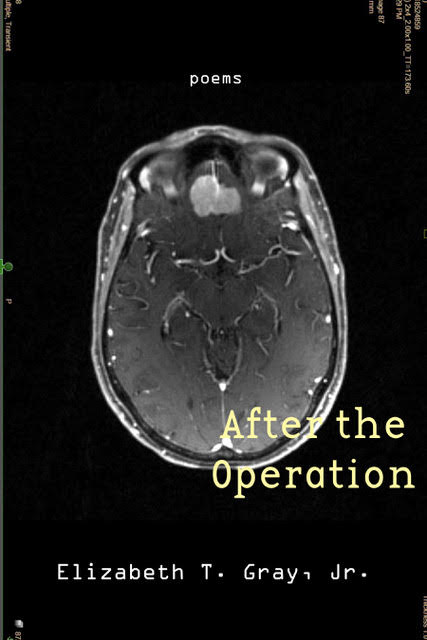Elizabeth T. Gray Jr.’s After the Operation reports from the No Man’s Land she wandered following eight hours of surgery to remove a brain tumor. What does the mind feel like after something has been taken out of your skull? “An uninhabited coast,” or “all shatter and thoroughfare”? These spare poems interweave medical documents, journal entries, and memories, assembling a polyvocal chorus to document the surgery itself and the recuperation process.
The decentralized perspective of After the Operation allows the reader to see the procedure holistically — medically, from the doctor’s perspective; subjectively, from the author’s; and vicariously, from her caretakers’, family’s, and friends’ — while approximating the disassociation the patient feels as she navigates unexpected cognitive and emotional side effects.
Sometimes bleak but always gorgeous, After the Operation does us a great service in illuminating and articulating the complexities of a serious medical event. This tangible chronicle of Gray’s terror, isolation, bafflement, desolation, love, loss, relief and gratitude serves as a beacon for all of us who will one day, as Susan Sontag says, find ourselves dwelling in “the kingdom of the sick.” Gray makes valiant use of her citizenship there, asking, “When they come for you, when the unfamiliar roar comes, and a sudden opening, and light pours in, when what had kept you safe, what had always been, is breached, pried open, and light pours in, what do you want to have been writing then?” After the Operation is her triumphant answer.
